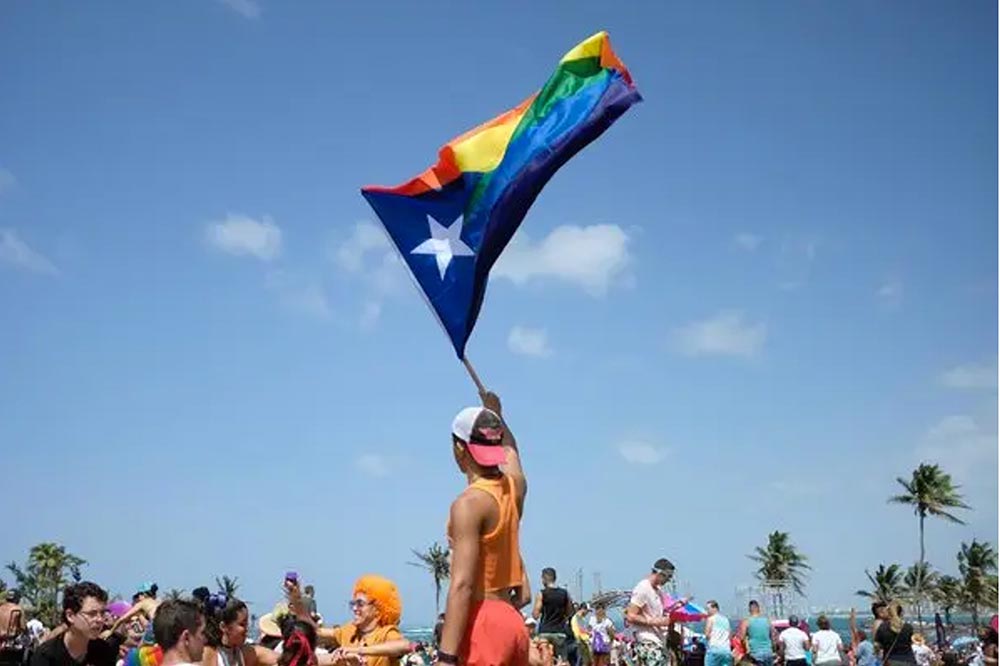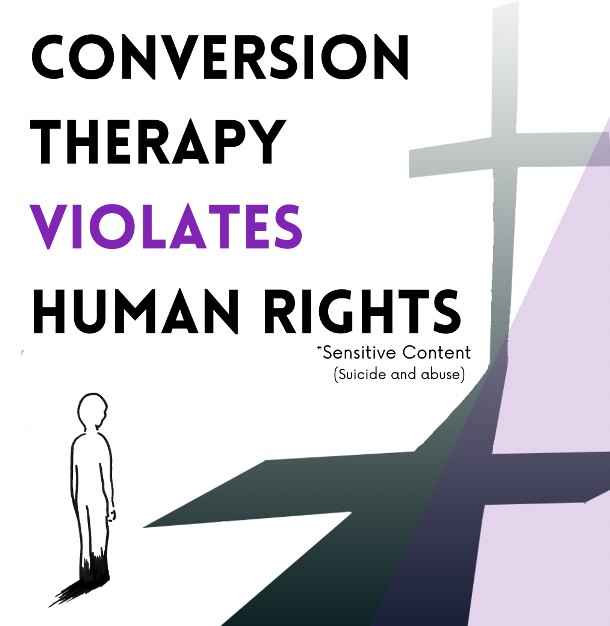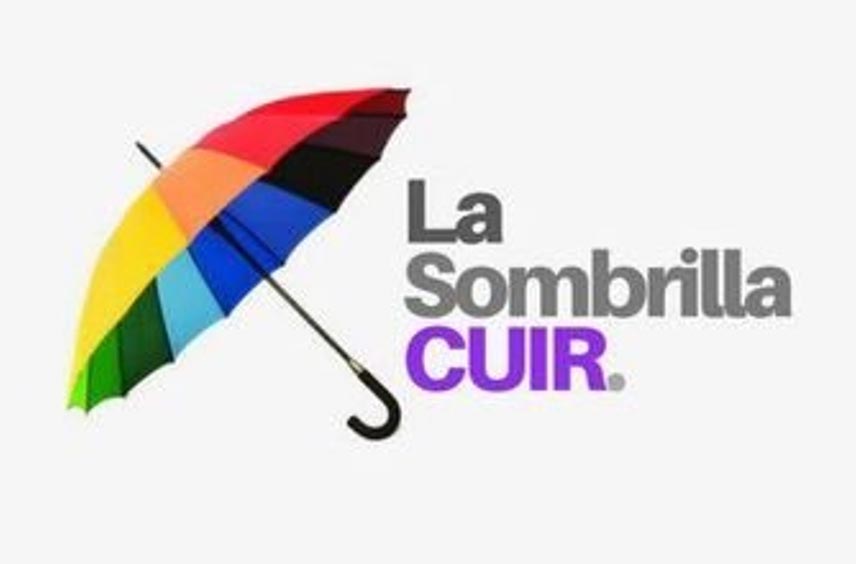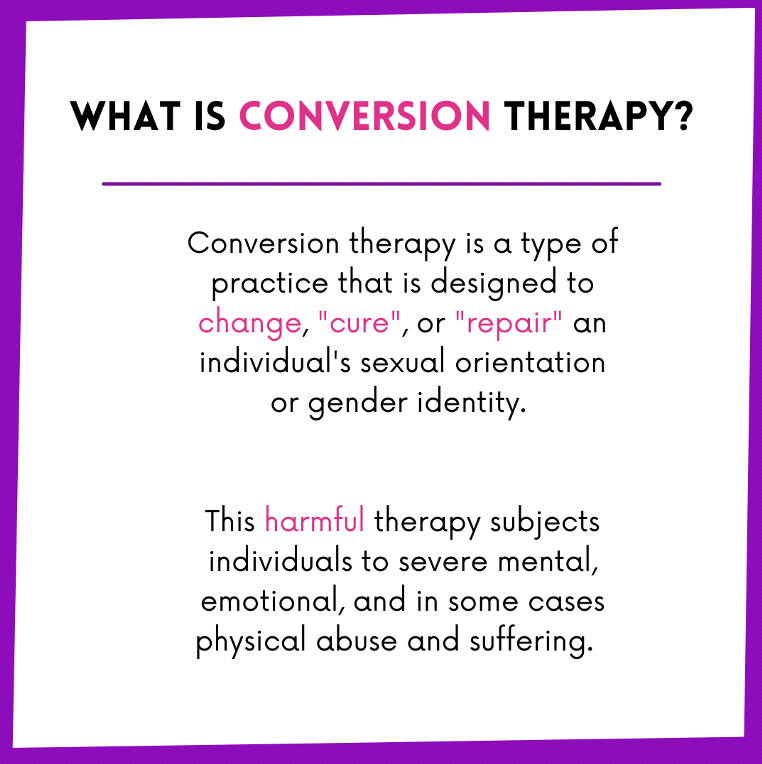By International Human Rights Clinic students Devon Hickey, Jasmine Gill, and Ella Wesley, under the supervision of Prof. Francisco Rivera.
In Spring 2022, the International Human Rights Clinic at Santa Clara Law (“Clinic”) created an Instagram social media campaign to support the legislative goals of the LGBTQ+ community in Puerto Rico against conversion therapy. This form of legal advocacy for international human rights was a continuation of the Clinic’s efforts to use social media in support of human rights advocacy campaigns. The Instagram post can be found here in Spanish and here in English. The Clinic created this content to support the advocacy and policy goals of LGBTQ+ civil organizations in Puerto Rico, arguing that conversion therapy violates an individual’s internationally recognized human rights to life and to protection from physical and mental harm. This project marks a continuation of new forms of legal advocacy by the Clinic that incorporates social media and graphic design, all while arguing for conformity with international human rights law.

Puerto Rico pride flag. Source.
Puerto Rico has made some progress in recognizing and protecting the rights of LGBTQ+ persons on the island, but many youths are still subjected to conversion therapy. Conversion therapy violates human rights, including the right to life, by subjecting individuals to severe mental, emotional, and in some cases physical abuse and suffering. The government of Puerto Rico recently tried unsuccessfully to abolish conversion therapy.

IHRC Instagram post. Source.
In May 2021, the Puerto Rican Senate considered Senate Bill 184. The legislation would have banned conversion therapy throughout Puerto Rico, but it failed to pass by one vote. The vote signaled to civil society that the religious fundamentalists on the island would oppose any legislative effort to ban conversion therapy.

La Sombrilla CUIR. Source.
The Clinic met and discussed the issue of conversion therapy with La Sombrilla Cuir, a Puerto Rican non-profit that primarily advocates for LGTBQ+ rights through social media. The Clinic helped create a social media campaign centered around international law that would serve as a useful tool for La Sombrilla Cuir and their following. La Sombrilla Cuir has a great understanding of the policy considerations and competing values around conversion therapy. Therefore, the team thought a social media campaign raising awareness of the legal human rights being violated by conversion therapy would aid in advancing La Sombrilla’s mission, as well as its advocacy and policy goals.
The team then set out to do legal research and include relevant legal arguments in the social media campaign. Additionally, the team had to create and design a series of images that were eye catching, but not excessively provocative. After several iterations and feedback and advice from La Sombrilla Cuir, the Clinic finally produced its first Instagram advocacy campaign.

IHRC Instagram post. Source.
The entire project has lasted a year. In that time, law students Jasmine Gill, Cassandra Wilkins, Devon Hickey, and Ella Wesley have worked on advocating for an end to conversion therapy in Puerto Rico; guided and supervised by the Clinic’s Director, Professor Francisco Rivera.
A key takeaway while working on the project was the importance of creating legal advocacy content that would reach the intended audience without using too much legalese. Thanks to a team of all advanced students, the Clinic was able to produce a unique piece of legal advocacy. As social media continues to substitute traditional sources of information, such as human rights reports or news articles, human rights advocates need to adapt their methods and work product to reach the intended audience. One of the challenges of this project was to combine graphic design with concise legal arguments that made sense to any audience unfamiliar with international law, as opposed to the typical audience of a judge or an international organization. In the end, everyone on the team felt that this had been one of their most fulfilling projects while at the Clinic.
The Clinic’s campaign (in both English and Spanish) can be found here and here.